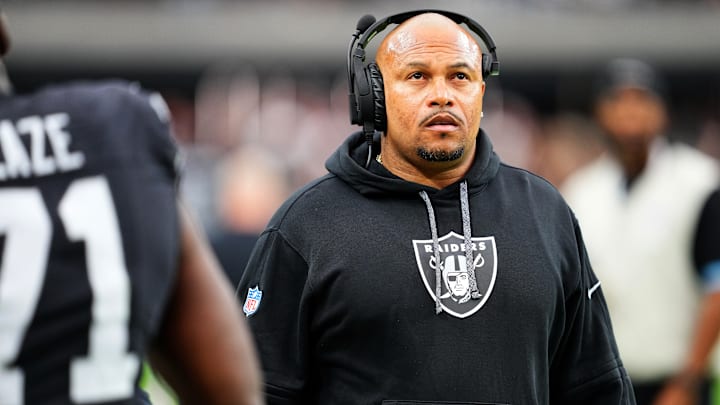Antonio Pierce's bad week just got a little bit worse.
On Thursday, the NCAA published a lengthy release that detailed a wide variety of recruiting violations that Pierce committed while he was an assistant coach at Arizona State University. Pierce was at ASU for four seasons, first as a linebackers coach and recruiting coordinator, and then as an associate head coach and defensive coordinator.
RELATED: Antonio Pierce channels his inner Bill Belichick in response to Davante Adams trade drama
According to the NCAA, during that time, Pierce "participated in a program wide effort to engage in impermissible recruiting activities during the COVID-19 dead period," and violated the principals of ethical conduct by providing "recruiting inducements" to potential Arizona State players and their families.
NCAA releases findings on Antonio Pierce's recruiting violations while at Arizona State
"Several members of the coaching staff indicated during their interviews with enforcement staff that Pierce "ran the show" within the Arizona State football program and they feared that not complying with Pierce's directives would result in losing their jobs ... Pierce directed an assistant coach to engage in tampering by texting and calling a student-athlete who was enrolled at another school and was not in the Transfer Portal."
The NCAA handed Pierce an eight year show-cause order, which essentially means that if Pierce were to be hired by any NCAA program over the next eight years, that program would be responsible for explaining to the NCAA why they should not face sanctions. The show-cause order, in theory, would allow for sanctions to be transfered from Arizona State to whatever new school Pierce would be at. While Pierce is technically allowed to go coach at another school, the order acts as something of an administrative suspension, as schools typically don't go through the trouble of hiring coaches with them. It's not dissimilar to Chargers head coach Jim Harbaugh, who was given a four year show-cause order after leaving the University of Michigan.
According to the report, Pierce also failed to cooperate with the NCAA's investigation even after leaving Arizona State. While he did meet with them, they found that he "consistently denied planning or arranging any portion of the visits, providing recruiting inducements, or participating in the out-of-state contacts" and didn't provide certain financial documents that the NCAA requested as part of the investigation.
If he were to leave the Raiders and get hired by a school, Pierce himself would have to serve a one-year suspension.
